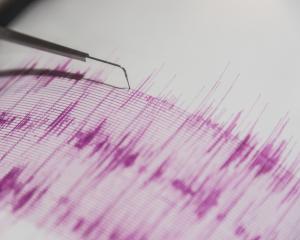Progress from two of our Pacific neighbours last week should be noted.
At a meeting in Auckland between New Zealand Foreign Affairs Minister Murray McCully and Tonga's Prime Minister Lord Tu'ivakano, Tonga agreed to take meaningful steps to address longstanding safety issues across its transport sector.
Failings in the sector were highlighted by the 2009 sinking of the unseaworthy interisland ferry Princess Ashika (which killed 74 people) and a subsequent royal commission of inquiry into the tragedy; and more recently by Tonga's use of controversial Chinese-built aircraft last year, which saw New Zealand issue a travel advisory and suspend millions of dollars in tourism aid.
The kingdom committed to a sector-wide review of transport safety to be led by the World Bank, with financial support from New Zealand.
There was much mutual back-slapping after the talks, with Mr McCully saying Lord Tu'ivakano's commitment to lead reform deserved ''the highest praise'' and was an essential foundation in developing the tourism sector there, and Lord Tu'ivakano in turn praising New Zealand for its immediate response in the wake of the devastation caused by Cyclone Ian in January.
The mutual adoration and hype is undeniable, but the success of the talks cannot be underestimated.
The agreements have reaffirmed the close economic, political, migration and tourism ties between the two countries.
Improvements there that can save lives and enable the growth of tourism as an important earner can only be a boon for Tonga and by association New Zealand as a key development partner, financial supporter and aid provider.
Progress in troubled Fiji is also heartening. Frank Bainimarama, who seized power of the country in a 2006 military coup, last week relinquished his position as Commander of the Republic of Fiji Military Forces in order to contest parliamentary elections in what is hoped will be a return to democracy for the country, as long sought by Australia and New Zealand.
Mr Bainimarama's move was necessary under Fiji's new constitution, adopted last year, which banned soldiers from political life. Brigadier-general Mosese Tikoitoga has been appointed the military's new commander.
Australian and New Zealand political leaders welcomed the move, with Mr McCully saying it was an ''important milestone towards separating the government and the military''.
Political types here and in Australia are eagerly anticipating democratic elections, but naturally remain wary.
After all, Mr Bainimarama has four military coups since 1987 to his name, threw out the previous constitution (and a new draft constitution prepared by a specially selected constitutional committee) and replaced it with a constitution widely condemned as eroding human rights, and his regime has restricted fundamental freedoms and been accused of human rights abuses.
The fact Mr Bainimarama will not relinquish the post of interim prime minister until the election shows he is determined to play it his way and maintain a hold on the country.
There are very real concerns about what may be going on behind the scenes, how credible the election process will be and whether it will be a truly ''free'' vote.
An opinion poll in a pro-government newspaper put his support at almost 80%, but the reliability of the poll is questioned. And of course it will remain to be seen whether General Tikoitoga will be able to remain free from political interference.
It is inevitable there will be more rhetoric and propaganda to come and, as has been clearly demonstrated in other countries progressing from autocratic regimes to democracies, notably and most recently Egypt, such a transition can be far from plain sailing.
However shaky though, any signs of progress are welcome, and New Zealand and Australia and other Pacific nations will continue watching - and hoping - that right will eventually prevail over might in that island nation.













